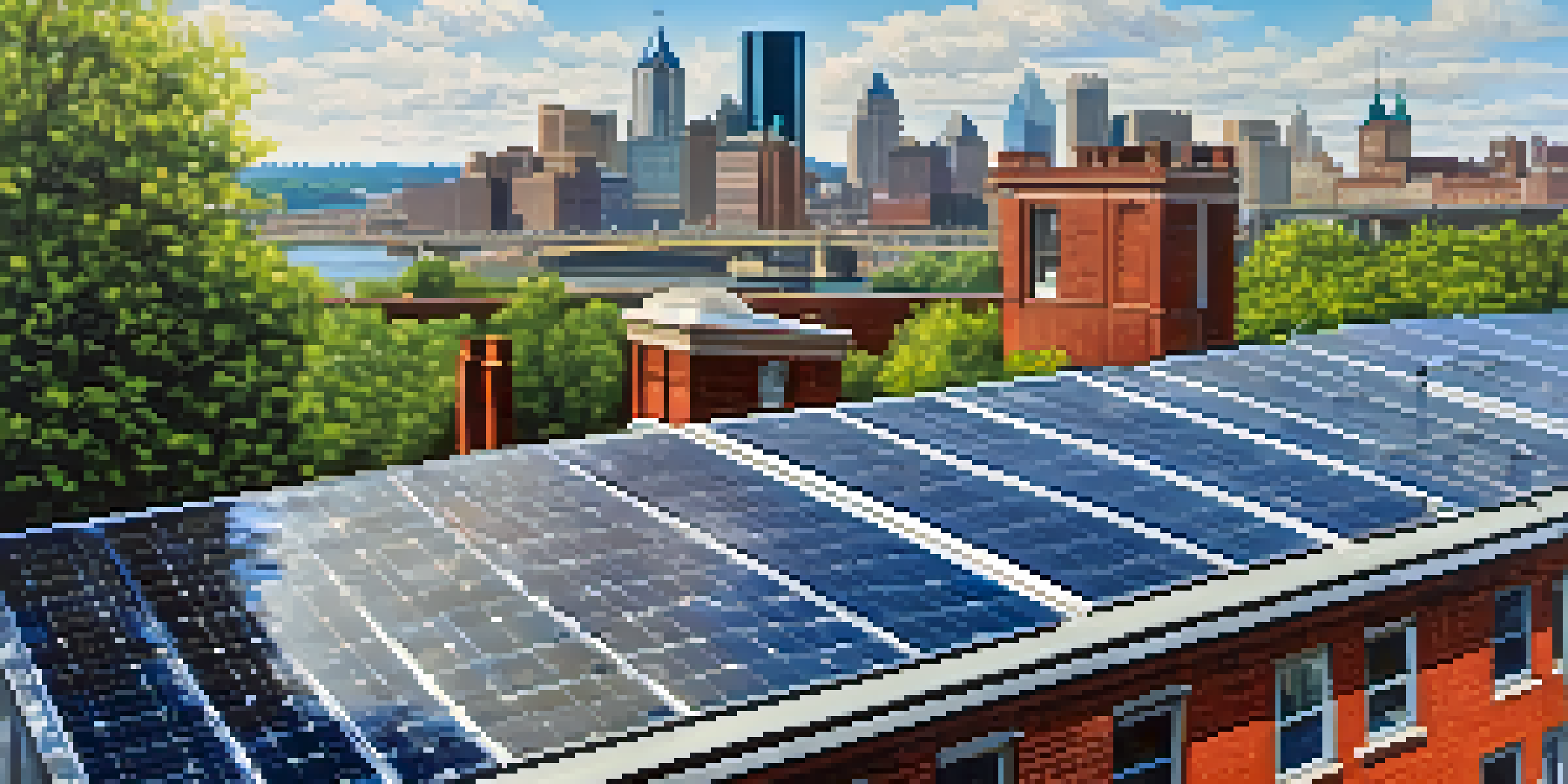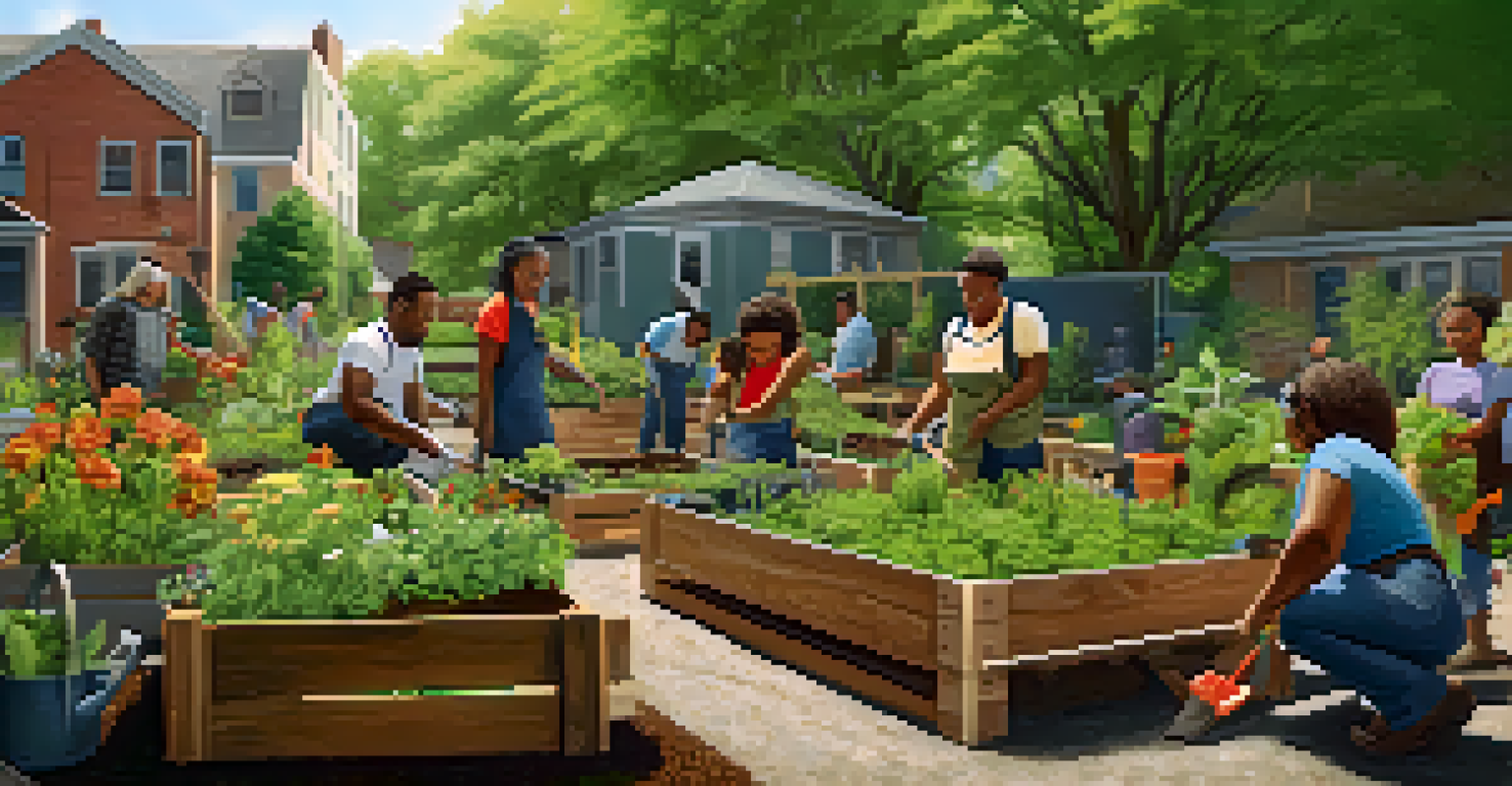Pittsburgh's Green Revolution: Urban Sustainability Initiatives

Introduction to Pittsburgh's Green Revolution
Pittsburgh, once known for its steel mills, is now a leader in urban sustainability. The city has embraced a 'Green Revolution' aimed at creating a more livable environment. This transformation is not just about beautifying the city; it's about ensuring a healthier future for its residents and the planet.
The earth does not belong to us: we belong to the earth.
With initiatives ranging from green spaces to renewable energy, Pittsburgh is setting an example for other cities. The local government, non-profit organizations, and community members are collaborating to promote sustainable practices. Together, they are reshaping the urban landscape into one that harmonizes with nature.
As we dive into the specifics of Pittsburgh's sustainability initiatives, you'll see how these efforts not only benefit the environment but also enhance the quality of life for its citizens. Let's explore the innovative strategies that are driving this remarkable change.
The Role of Green Spaces in Urban Renewal
Green spaces are critical in Pittsburgh's urban sustainability strategy. Parks and gardens provide not only aesthetic beauty but also essential benefits like air purification and temperature regulation. The city has made significant investments in revitalizing existing parks and creating new green areas.

One shining example is the conversion of old industrial sites into vibrant community parks. These spaces foster social interaction, promote physical activity, and support biodiversity. As more residents enjoy these areas, the community spirit grows, reflecting a healthier and more connected city.
Green Spaces Boost Urban Renewal
Pittsburgh's revitalized parks and gardens enhance aesthetics, improve air quality, and foster community engagement.
Moreover, green spaces play a vital role in stormwater management, reducing flooding risks and improving water quality. By integrating nature into the urban fabric, Pittsburgh is showing that cities can be both developed and green, setting a benchmark for others to follow.
Promoting Renewable Energy Sources
Pittsburgh is actively promoting the use of renewable energy as part of its sustainability initiatives. The city is investing in solar, wind, and other clean energy sources to reduce its carbon footprint. This shift not only combats climate change but also encourages economic growth and job creation in green industries.
Sustainability is about ecology, economy, and equity.
Local government programs offer incentives for residents and businesses to adopt renewable energy solutions. For instance, solar panel installations are becoming more common, and community solar projects are making clean energy accessible to all. These efforts are crucial in building a resilient energy future.
By prioritizing renewable energy, Pittsburgh is empowering its citizens to take part in the global movement toward sustainability. As businesses and homeowners embrace these changes, the city inches closer to its goal of becoming a carbon-neutral community.
Sustainable Transportation Initiatives
Transportation is another key area where Pittsburgh is innovating for sustainability. The city is enhancing its public transit system and promoting biking and walking as viable alternatives to driving. These initiatives aim to reduce traffic congestion and lower greenhouse gas emissions.
Programs like bike-sharing and expanded bike lanes encourage residents to choose eco-friendly transportation options. Additionally, public transportation improvements make it easier for citizens to get around without relying on personal vehicles. This shift not only benefits the environment but also improves overall public health.
Renewable Energy Drives Sustainability
The city promotes solar and wind energy to reduce its carbon footprint and stimulate economic growth.
As Pittsburgh continues to invest in sustainable transportation infrastructure, it sets an example for urban centers nationwide. The message is clear: a greener city is a more accessible city, where everyone can enjoy the benefits of a cleaner environment.
Community Engagement in Sustainability Efforts
Community engagement is at the heart of Pittsburgh's sustainability initiatives. Local organizations and residents are actively participating in planning and implementing green projects. This collaborative approach ensures that the needs and voices of the community are heard and prioritized.
Workshops, volunteer days, and awareness campaigns are some of the ways residents can get involved. These activities not only educate the public about sustainability but also foster a sense of ownership and pride in their environment. When people feel connected to their city, they are more likely to contribute to its success.
Such grassroots efforts are crucial in building a sustainable culture that lasts for generations. Pittsburgh's commitment to involving its citizens in the green revolution exemplifies the power of community in driving meaningful change.
Innovations in Waste Management
Waste management is another critical focus of Pittsburgh's urban sustainability plan. The city has implemented innovative recycling and composting programs to reduce landfill waste. By encouraging residents to minimize waste, Pittsburgh is taking significant steps toward a circular economy.
The introduction of curbside composting has been particularly successful, diverting organic waste from landfills and enriching soil. This not only helps the environment but also supports local agriculture and gardening efforts. Residents are becoming more conscious of their consumption habits and are eager to participate.
Community Engagement Fuels Change
Active participation from residents in green initiatives fosters a sense of ownership and promotes a sustainable culture.
Through education and community involvement, Pittsburgh is transforming its waste management system into one that prioritizes sustainability. These initiatives are vital for creating a cleaner, greener city that respects natural resources and promotes responsible consumption.
Future Goals and Challenges Ahead
While Pittsburgh has made remarkable strides in its green revolution, challenges remain. The city aims to further reduce its carbon emissions and enhance sustainability efforts across all sectors. Ongoing collaboration between government, businesses, and citizens will be essential in overcoming these hurdles.
Future goals include expanding green infrastructure, improving energy efficiency, and increasing access to sustainable resources. These ambitious targets demonstrate Pittsburgh's commitment to leading the way in urban sustainability. However, achieving these goals requires sustained effort and innovation.

As the city looks ahead, it must also address issues like social equity and economic disparity. By ensuring that all community members benefit from sustainability initiatives, Pittsburgh can create an inclusive model for urban sustainability that other cities can emulate.